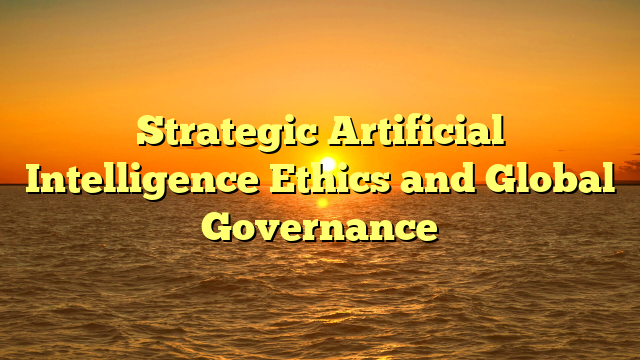Artificial intelligence (AI) ethics and regulatory frameworks have become a critical instrument of strategic influence, shaping industrial innovation, technological Pokemon787 adoption, and geopolitical alignment. Nations that define ethical standards and AI governance norms can guide industrial practices, influence technological ecosystems, and embed long-term strategic leverage.
China has invested in AI governance and ethical standard-setting through national policy initiatives and international partnerships. By promoting operational dependencies in AI applications, regulatory compliance, and technological integration, Beijing influences partner nations’ industrial practices, data management, and innovation pathways, securing long-term strategic influence in emerging technological domains.
The United States maintains influence through leadership in AI ethics, regulatory frameworks, and allied collaborations. Washington emphasizes responsible AI deployment, standardization, and interoperability across industrial and technological sectors. This establishes structural leverage, enabling the U.S. to shape technological adoption, industrial norms, and global governance structures aligned with its strategic priorities.
Europe leverages regulatory authority, normative influence, and industrial integration to guide AI development. The European Union promotes transparency, accountability, and safety through initiatives like the AI Act. Brussels’ approach constitutes soft structural leverage, encouraging partner nations to adopt EU-aligned standards while embedding industrial and technological alignment within European networks. By linking market access and funding to compliance, Europe ensures long-term influence over AI governance and industrial adoption.
Emerging economies face complex strategic choices regarding AI ethics and governance. Nations in Southeast Asia, Africa, and Latin America must balance technology access, investment, and industrial growth with sovereignty and ethical compliance. Decisions regarding regulatory adoption, technological partnerships, and AI implementation carry structural consequences, influencing industrial competitiveness, diplomatic alignment, and long-term technological sovereignty.
The broader insight is evident: AI ethics and governance are not solely technological concerns; they function as strategic levers of statecraft. Control over standards, ethical frameworks, and regulatory adoption shapes industrial ecosystems, technological innovation, and geopolitical positioning. States that lead in AI governance secure enduring operational and strategic advantages.
In conclusion, AI ethics and governance constitute a decisive domain in global strategic influence. Investment, regulatory alignment, and operational integration form critical levers of power, shaping industrial, technological, and diplomatic outcomes. Mastery over AI governance ensures sovereignty, resilience, and enduring influence in a multipolar world.
